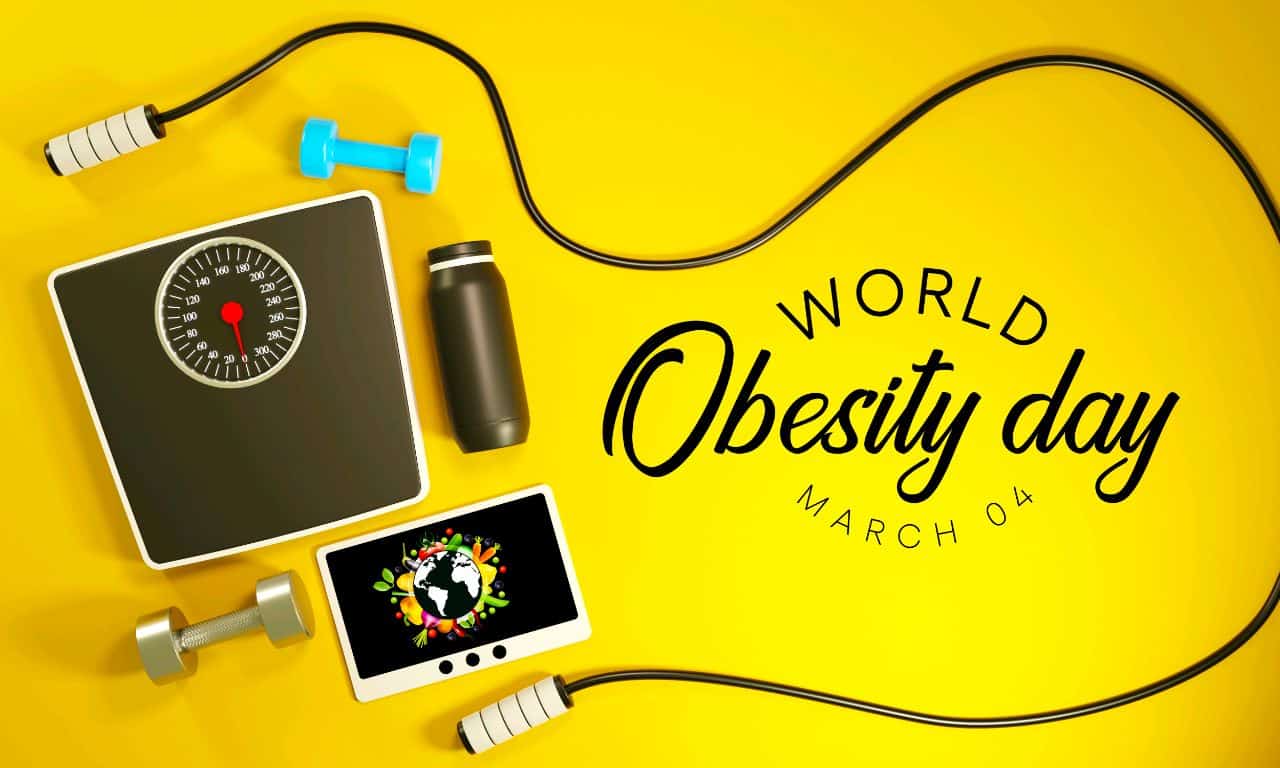
World Obesity Day is an annual event observed on 4th March that aims to raise awareness about the global obesity epidemic and its impact on public health. The World Obesity Federation organizes this event in collaboration with its global members. This year’s theme, ‘Changing Perspectives: Let’s Talk About Obesity’, seeks to encourage conversations and discussions around obesity. On this day, WHO and its partners are calling on everybody to unite and work towards improving, preventing, and managing obesity, and to strive for progress.
Let’s leverage the power of conversations and personal narratives, and together we can combat obesity, a worldwide epidemic, and address its many root causes. Through collective collaboration, we can challenge the existing societal norms and promote a healthier lifestyle for all.
What is obesity?
Obesity is a complex and multifactorial condition that occurs when a person’s body weight is higher than what is considered healthy for their height, age, and gender. It is a serious health concern that increases the risk of many other health issues, including diabetes, heart disease, stroke, some types of cancer, and mental illness.
Weight Loss Is 99% Mental And 1% Physical. Start Your Journey Today. Click Here.
What is the root cause of obesity?
The notion that obesity is solely due to the lack of willpower is a misconception. Its root causes are complex and multifaceted and extend beyond the proverb ‘eat less, move more’. Weight gain is often driven by a variety of factors that are outside people’s control, such as medical conditions like hypothyroidism, polycystic ovarian syndrome, depression, genetics, life events, environment, access to healthcare, and ultra-processed food. In addition, most people’s lifestyles involve working at a desk all day, traveling in cars, and spending leisure time in front of a screen.
COVID-19 and Obesity: Double trouble
Studies have highlighted that individuals with COVID-19 and obesity are at an increased risk of severe illness, hospitalization, and death. During the COVID-19 pandemic, obesity has emerged as a prominent risk factor for severe disease progression as it weakens the immune system, decreases lung capacity, and makes breathing difficult for patients with coronavirus disease. The new normal life (stay at home, work from home, and physical distancing) post-COVID-19 pandemic has forced us to make significant lifestyle changes, exposing us to obesity.
Unfortunately, children have been hit the hardest in this regard, experiencing the double threat of COVID-19 and childhood obesity (CO-BESITY) in this new normal era. Due to the pandemic, children have lost their precious school life, which aided their physical and mental fitness through diverse activities like interaction with their peers, engaging in physical activities, and much more. It is also evident that the lockdown prompted people in many countries to stock up on ultra-processed foods that were shelf-stable, calorie-dense, and easy to cook, placing children at a higher risk of gaining weight.
What can everyone do to combat obesity?
In the late 1990s, obesity was only seen as a western concern but as per National Family Health Survey-5 (NFHS-5), one in every four Indians is now obese, with children being particularly affected. So now is the time to come forward and act to prevent and control this growing problem.
Here are some steps that can be taken by the government, civil society groups, healthcare providers, and citizens to control this escalating challenge:
-Government can provide and improve access to better obesity care, address obesity prevention and treatment through stronger healthcare systems and universal health coverage, and reduce the marketing of unhealthy foods and beverages high in fat, sugar, and salt.
-Civil society groups can educate people on adopting healthy eating habits and a better lifestyle.
-Healthcare providers can use up-to-date, evidence-based obesity management resources to provide the best care.
-Individuals and families can adopt a healthy diet, incorporate daily exercise into their routines, and share their experiences in this fight against obesity.
**Consult India’s best doctors here**
Final thoughts
Following this year’s World Obesity Day theme “Changing Perspectives: Let’s Talk About Obesity”, let us all raise awareness around this global epidemic to ensure happier, healthier, and longer lives.
(The article is written by Monalisa Deka, Senior Health Content Editor, and reviewed by Dr. Swati Mishra, Medical Editor)
Recommended Reads:
6 Lesser-Known Evidence-Based Weight Loss Tips That Actually Work
All That You Must Know About Intermittent Fasting
References:
1. NFHS. Online available at: http://rchiips.org/nfhs/NFHS-5_FCTS/India.pdf
2. MOH. Online available at: https://main.mohfw.gov.in/sites/default/files/NFHS-5_Phase-II_0.pdf
3. NCBI. Online available at: https://www.ncbi.nlm.nih.gov/pmc/articles/PMC9131485/
4. CDC. Online available at: https://www.cdc.gov/obesity/data/obesity-and-covid-19.html
5. The Lancet. Online available at: https://www.thelancet.com/journals/langas/article/PIIS2468-1253(21)00190-4/fulltext
6. NHS. Online available at: https://www.nhsinform.scot/illnesses-and-conditions/nutritional/obesity
7. WOD. Online available at: https://www.worldobesityday.org/
8. World Obesity. Online available at: https://www.worldobesity.org/what-we-do/world-obesity-day